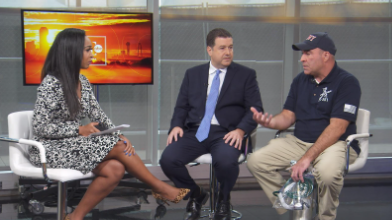Testimonials
Psychedelic Assisted Therapies (“PAT”) have real impacts on our friends, family and neighbors.
Despite the prohibition of psychedelic medicines, underground practitioners have been helping patients integrate their psychedelic experiences into therapeutic programs. This work has been essential in expanding the scientific knowledge and understanding of these psychedelic molecules and their impact on mental health.
These are their stories….
Jesse Gould is the Founder and President of the Heroic Hearts Project, a 501(c)(3) nonprofit pioneering psychedelic therapies for military veterans. After being deployed as an Army Ranger in Afghanistan three times, he founded the Heroic Hearts Project in 2017 to spearhead the acceptance and use of ayahuasca therapy as a means of addressing the current mental health crisis among veterans. The Heroic Hearts Project has raised over $350,000 in scholarships from donors including Dr. Bronner’s and partnered with the world’s leading ayahuasca treatment centers, as well as sponsoring psychiatric applications with the University of Colorado Boulder and the University of Georgia. Jesse helps shape treatment programs and spreads awareness of plant medicine as a therapeutic method. He has spoken globally about psychedelics and mental health and received accolades including being recognized as one of the Social Entrepreneurs To Watch For In 2020 by Cause Artist. Driven by a mission to help military veterans struggling with mental trauma, he is best known for his own inspiring battle with Post-Traumatic Stress Disorder (PTSD) and his recovery through ayahuasca therapy.
Jesse Gould
Heroic Hearts Project
Joe McKay
Cluster Headaches, PTSD, Psilocybin & Healing - Joe McKay
New York City Firefighter Joe McKay worked for months at Ground Zero after the World Trade Center buildings fell on September 11, 2001. Joe lost 26 people, including four from his unit. He recalls sifting through the wreckage day and night and then attending countless funerals for fallen first responders.
Six months later, Joe experienced pain so intense he thought he was having a stroke. This continued for months before Joe received a proper diagnosis of cluster headache, the worst pain a human can experience. This medical condition is also known as suicide headaches “because it’ll make the thought cross your mind when you’re dealing with something as bad as that,” says Joe. Those with cluster headache die by suicide at 20 times the national average. It would be a few years before Joe found a treatment that helped to effectively manage his attacks.
An unlikely way to manage cluster headache
Joe found an online support group conducted by Clusterbusters, a non-profit organization dedicated to finding more effective treatments for cluster headache. Joe learned about the successes people were having in preventing attacks using psilocybin.
There is a growing body of research showing how the neuroplastic, neurogenesis and anti-inflammatory properties of psilocybin are helpful in battling a wide range of chronic pain conditions. Joe, now retired from FDNY, uses psilocybin to prevent cluster headache attacks and the psilocybin therapy has also been helpful in reducing the PTSD he had after the horrors of 9/11. The effects of psilocybin have truly been life-changing for Joe.
Advocating for change
It is not known whether Joe’s cluster headaches were triggered as a result of being exposed to toxins at Ground Zero. Regardless, he advocates on a national level for health benefits for 9/11 first responders and for veterans exposed to toxins while serving (PACT Act). Joe also serves on the Board of Directors for Clusterbusters, working to expand psychedelic access and provide other support for people living with the intense pain of cluster headaches.
Available for interviews
If media would like to speak with Joe McKay, he can be reached at: joem@clusterbusters.org
The toll of cluster headaches
One in 1,000 Americans have cluster headaches, which occur in cyclical patterns or cluster periods. Cluster headaches are linked to circadian rhythms and tied to sleep cycle, the time of day, and the seasons. When someone enters into a cluster cycle it can last for weeks or months. They can have multiple attacks per day, each lasting anywhere from fifteen minutes to four hours. Joe had cycles that lasted anywhere from six weeks to seven months, averaging six attacks each day.
“Unfortunately, with this, you have a lot of attacks at night… They’ll wake you up. It’s like Freddy Krueger is just waiting for you to fall asleep. When you do, he sits on your chest and sinks his hot poker finger into your eye. He sits on top of you and tries to pop your eye out of the socket and laughs at you.”
Submit a Testimonial
NYMHA is collecting testimony for educational, awareness, and advocacy purposes. We plan to share testimonials with policymakers and the general public.
If you are a patient, caregiver, integrator, provider, doctor, researcher, or otherwise affected by Psychedelic Assisted Therapy, please use this form to submit your written or video testimony.





